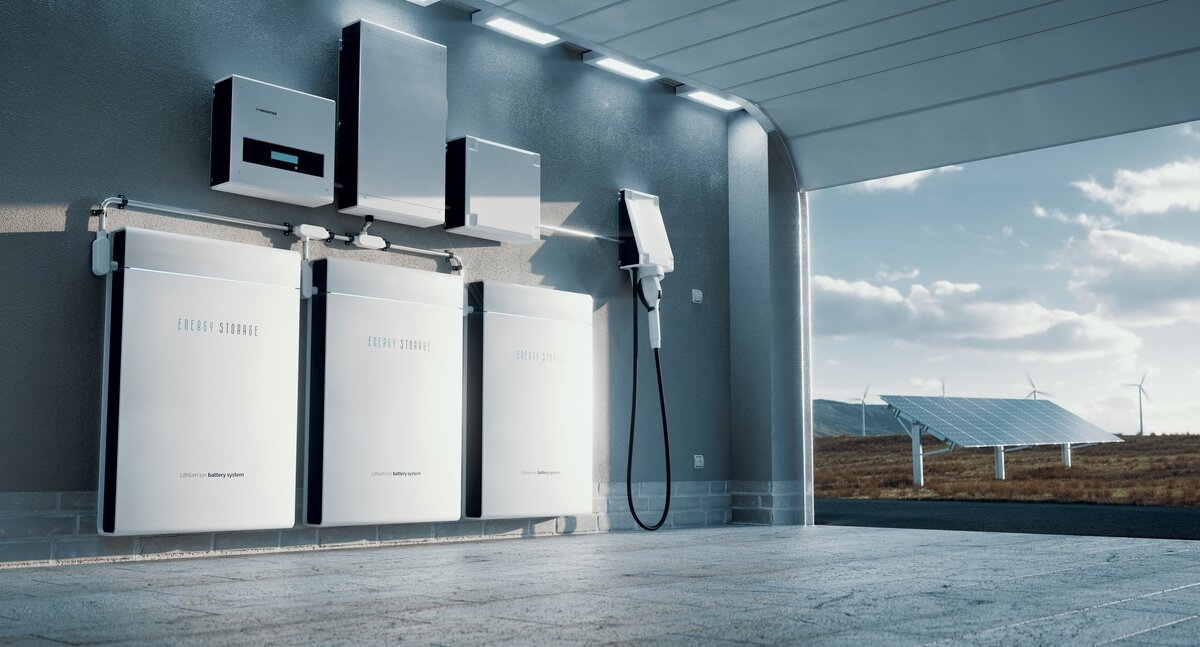Solar Battery Buying Guide: Everything You Need to Know

In the ever-evolving world of renewable energy, solar power stands out as a sustainable and efficient solution. Harnessing the sun's energy through solar panels is becoming increasingly popular, and one crucial component of a solar power system is the solar battery. This comprehensive guide will walk you through the essential aspects of solar batteries, ensuring you make an informed decision when purchasing one for your home.
How Solar Batteries Work
The Basics of Energy Storage
Solar batteries play a pivotal role in a solar power system by storing excess energy generated during sunny periods. This stored energy can then be utilized during cloudy days or nighttime when solar panels are not actively producing electricity. The primary function of a solar battery is to store and discharge energy efficiently.
Chemistry Behind Solar Batteries
Solar batteries come in various types, each employing different chemical compositions. Common types include lead-acid, lithium-ion, and saltwater batteries. Understanding the chemistry behind these batteries is essential to choose the one that best suits your needs.
Lead-Acid Batteries
Lead-acid batteries have been a traditional choice for solar applications. They are cost-effective but come with the drawback of shorter lifespans and lower energy density compared to newer technologies.
Lithium-Ion Batteries
Lithium-ion batteries, popularized by electric vehicles, are gaining traction in the solar industry. They offer high energy density, longer lifespans, and faster charging capabilities, making them a preferred choice for many homeowners.
Saltwater Batteries
For those seeking eco-friendly options, saltwater batteries are emerging as a sustainable choice. They are non-toxic and easily recyclable, providing a greener alternative for energy storage.
Different Types of Solar Batteries
When considering a solar battery, it's crucial to choose the type that aligns with your energy needs, budget, and environmental preferences. Let's delve deeper into the different types of solar batteries:
Lead-Acid Batteries
Lead-acid batteries are divided into two main categories: flooded and sealed. Flooded lead-acid batteries require regular maintenance, including topping up water levels, while sealed lead-acid batteries are maintenance-free but come with a higher price tag.
Lithium-Ion Batteries
Lithium-ion batteries come in various chemistries, such as lithium cobalt oxide (LiCoO2) and lithium iron phosphate (LiFePO4). LiFePO4 batteries are known for their safety and longer lifespan, making them a popular choice for residential solar installations.
Saltwater Batteries
Saltwater batteries, also known as flow batteries, use saltwater as an electrolyte. They are environmentally friendly, with fewer concerns about toxicity or fire hazards. However, their current drawback is lower energy density compared to other types.
How to Set Up a Battery Backup System
Assessing Your Energy Needs
Before setting up a battery backup system, it's essential to determine your household's energy consumption patterns. Understanding peak energy usage helps in selecting the right-sized solar battery to meet your needs.
Integration with Solar Panels
Ensure seamless integration between your solar panels and the battery system. This involves configuring the system to allow excess energy to charge the battery during sunny periods and draw from it when needed.
Inverter Selection
Choose a compatible inverter that efficiently converts direct current (DC) from the solar panels and battery into alternating current (AC) for household use. Opting for a hybrid inverter can simplify the setup, enabling both grid and battery use.
Maintaining a Battery Backup System
Regular Inspections
Perform routine inspections to ensure your solar battery system is functioning optimally. Check for any signs of wear, loose connections, or corrosion. Addressing minor issues promptly can prevent major malfunctions in the long run.
Temperature Considerations
Solar batteries are sensitive to temperature variations. Install the battery in a cool and well-ventilated area to maximize its lifespan. Some batteries come with built-in thermal management systems to regulate temperature effectively.
Software Updates
Stay updated with the latest software releases for your battery management system. Manufacturers often provide firmware updates to enhance performance and address potential issues.
Lifespan and Warranties
Understanding Battery Lifespan
The lifespan of a solar battery depends on factors such as battery type, usage patterns, and maintenance. On average, lead-acid batteries last around 5-15 years, while lithium-ion batteries can endure 10-20 years. Saltwater batteries, being relatively new, are still establishing their long-term reliability.
Warranty Considerations
When investing in a solar battery, carefully review the manufacturer's warranty. Warranties typically cover a specified number of cycles or years. A longer warranty often indicates the manufacturer's confidence in the battery's durability.
Conclusion
Investing in a solar battery is a significant step towards achieving energy independence and reducing your environmental impact. By understanding how solar batteries work, the different types available, the setup process, maintenance requirements, and considerations for lifespan and warranties, you can make an informed decision that aligns with your energy goals. Embrace the power of solar energy and empower your home with a reliable and efficient solar battery backup system.
In the sun-soaked city of Canberra, the integration of solar batteries has become a prominent feature in the quest for sustainable energy solutions. With its abundant sunlight, Canberra proves to be an ideal setting for harnessing solar power. Residents are increasingly adopting solar battery canberra systems to store excess energy generated by their solar panels, ensuring a continuous and reliable power supply. This move not only contributes to reducing electricity bills but also aligns with the city's commitment to environmental conservation. As Canberra embraces the future of clean energy, solar batteries play a pivotal role in shaping a more sustainable and eco-friendly community.
- Industry
- Art
- Causes
- Crafts
- Dance
- Drinks
- Film
- Fitness
- Food
- Παιχνίδια
- Gardening
- Health
- Κεντρική Σελίδα
- Literature
- Music
- Networking
- άλλο
- Party
- Religion
- Shopping
- Sports
- Theater
- Wellness
- News


